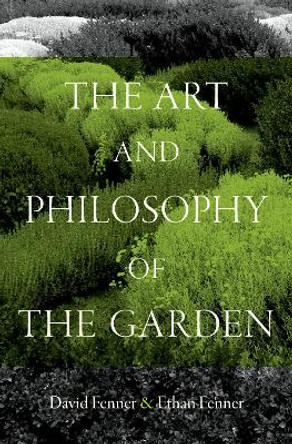Why do gardens matter so much and mean so much to people? That is the intriguing question to which David Cooper seeks an answer in this book. Given the enthusiasm for gardens in human civilization ancient and modern, Eastern and Western, it is surprising that the question has been so long neglected by modern philosophy. Now at last there is a philosophy of gardens. Not only is this a fascinating subject in its own right, it also provides a reminder that the subject-matter of aesthetics is broader than the fine arts; that ethics is not just about moral issues but about 'the good life'; and that environmental philosophy should not focus only on 'wilderness' to the exclusion of the humanly shaped environment. David Cooper identifies garden appreciation as a special human phenomenon distinct from both from the appreciation of art and the appreciation of nature. He explores the importance of various 'garden-practices' and shows how not only gardening itself, but activities to which the garden especially lends itself, including social and meditative activities, contribute to the good life. And he distinguishes the many kinds of meanings that gardens may have, from representation of nature to emotional expression, from historical significance to symbolization of a spiritual relationship to the world. Building on the familiar observation that, among human beings' creations, the garden is peculiarly dependent on the co-operation of nature, Cooper argues that the garden matters as an epiphany of an intimate co-dependence between human creative activity in the world and the 'mystery' that allows there to be a world for them at all. A Philosophy of Gardens will open up this subject to students and scholars of aesthetics, ethics, and cultural and environmental studies, and to anyone with a reflective interest in things horticultural.
ReviewsCooper's A Philosophy of the Garden is a fine and stimulating study that is highly accessible even for those foreign to the field of philosophy. The study nicely grasps the aesthetic distinctiveness of gardens in a way that demonstrates the ultimate inadequacy of such labels as 'nature ,' 'art', or even 'nature and art' - the garden stands on its own ground. * Marie-Luise Egbert ZAA *
an intricately argued, beautifully nuanced and highly sensitive analysis of what gardens mean and what sort of enterprise they are . . . David E. Cooper has written a book that anyone who wants to understand gardening, our relationship with nature, and the arts will want to read. * Mara Miller, Journal of Aesthetics and Art Criticism *
Cooper's performance is impressive * Jennifer Potter, Times Literary Supplement *
This is a challenging book intellectually, but eminently readable...and would make an excellent Christmas present for any thinking gardener. * Tim Richardson, Daily Telegraph *
Durham University's David Cooper has a good stab at filling this 'green gap' in a book which places garden appreciation on the same level as the appreciation of literature ... Cooper argues a strong case for placing gardening at the centre of any 'good' or ethical life ... He certainly makes you think. * The Northern Echo *
'intriguing' * Neville Hawcock, Financial Times Magazine *
eminently readable by non-philosophers and as well as philosophers...contains many interesting citations from a host of historical, philosophical and religious authorities. * Philosophers' Magazine *
Book InformationISBN 9780199290345
Author David E. CooperFormat Hardback
Page Count 184
Imprint Oxford University PressPublisher Oxford University Press
Dimensions(mm) 211mm * 142mm * 21mm









